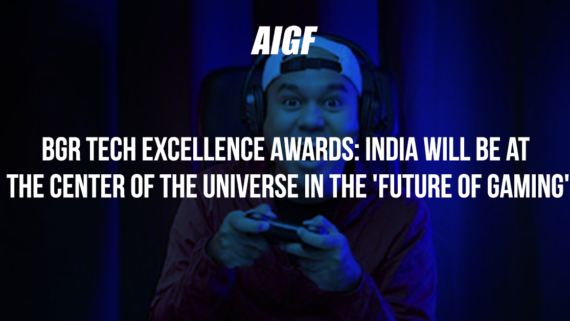All India Gaming Federation CEO Roland Landers states, “India is the fifth biggest online gaming market around the world and skill-based gaming, a dawn sector, is bringing forth an expanding number of unicorns inside the country, particularly Karnataka. The sector has been a strong monetary contributor to the Indian economy in any event, during a remarkable time of lockdown and is additionally expected to create incomes in the abundance of $ 3 billion by 2025. The move by the Karnataka government in tabling the Karnataka Police (Amendment) Compliance Act, 2021 act can be viewed as a difficulty to the state’s standing of being a tech-hub and start-up capital.”
Karnataka Home Minister Tables Bill To Ban Online Gaming; AIGF Expresses Concerns Of The Move Being Against A Sunrise Sector
The Karnataka Police (Amendment) Bill, 2021, was tabled in the Legislative Assembly on 17 September to boycott online gaming or betting by revising the Karnataka Police Act of 1963, with the most extreme detainment of three years and punishment up to ₹1 lakh.
Home Minister Araga Jnanendra presented the Bill, which intends to ‘boycott online games, including all types of betting or wagering, including the type of tokens valued in terms of money, paid previously or after issue of it. It restricted electronic means and virtual currency, electronic transfer of funds regarding any game of chance’.
Most of India’s unicorns are situated in Bengaluru because it has progressive policies for new startups, regulatory certainty, and a youthful and gifted workforce. Nonetheless, the Karnataka government might hamper this picture of Bangalore and presumably the general gaming environment of the nation by presenting a law of not denying the online real money skill gaming in its State.
The legal jurisprudence radiating from the Supreme Court in recent years is exceptionally clear, that games of skill are not gambling, and presenting games of skill is a real action ensured under the Indian Constitution. This has been repeated at different times by different high courts, including the Karnataka High Court.
Despite the clear law and the judgments, numerous states including Tamil Nadu have attempted to boycott skill-based online games. The Tamil Nadu High Court last month gave a detailed judgment striking down the Tamil Nadu law which denied online games of skill, as unlawful. The Court explained that any limitation on games of skill, regardless of whether online or offline, should be restricted and the state should attempt to manage, rather than boycott. The Court likewise descended vigorously on the State government for passing the law as a populist measure leading the state elections, without keeping the setup law. The Court likewise expressed that Entry 34 of the State List under the Constitution, from where the Karnataka amendment follows its power, can’t be used to control games of skill, and must be used to boycott/direct games of chance.
Commenting on something similar, All India Gaming Federation CEO Roland Landers states, “India is the fifth biggest online gaming market around the world and skill-based gaming, a dawn sector, is bringing forth an expanding number of unicorns inside the country, particularly Karnataka. The sector has been a strong monetary contributor to the Indian economy in any event, during a remarkable time of lockdown and is additionally expected to create incomes in the abundance of $ 3 billion by 2025. The move by the Karnataka government in tabling the Karnataka Police (Amendment) Compliance Act, 2021 act can be viewed as a difficulty to the state’s standing of being a tech-hub and start-up capital.”
Skill-based gaming couldn’t be compared to gambling, and prohibiting isn’t an answer. Explaining this further, Supreme Court former Judge and Karnataka High Court former Chief Justice Vikramajit Sen added, “The Indian regulatory framework has clearly distinguished between games of skill and games of chance in India. Since games of skill might include an entry fee they can’t be viewed as gambling. Games of chance are viewed as gambling as it includes luck as opposed to skill and hence it is explicitly restricted by the law, wherein games of skill are considered lawful across most states including digital and online. The sector needs the help of state governments to promote drives towards capable gaming and acknowledgment of the AIGF ‘Self-regulation Framework’. AIGF and its advisory members anticipate a chance to draw in stakeholders inside the state government to make an industry portrayal on the matter.”
The Karnataka Police Act, under the set down law restricted games of chance. Notwithstanding, presently in the attire of including online gambling inside its ambit, the government is additionally attempting to slide in games of skill. The draft bill will likewise prohibit games likes online chess, archery, online quiz games, other Indian games, all-digital adaptations of traditional games, including games included in Asian Games and Olympic Virtual Series. In the setting of Asian Games announcing that 24 medals will be granted for eSports at the following year’s edition, this law can be exceptionally hazardous for the professional gaming players as this might influence the livelihoods and pay off these gamers living in that state.
With serious concerns approaching from the Karnataka Government’s move to boycott online gaming, President Players’ Association – AIGF and former senior IAS PK Misra, said, “The move will influence the online skill-based gaming sector, stopping player’s right to earn their livelihood. There is no clearness on the extent of this law, and we stay in steady dread of the players’ livelihood being restricted whenever without earlier information or dialogue.”
Leading the initiatives of the Players’ association at AIGF, Misra has held key positions in Indian bureaucracy. Giving his proven direction and bringing to the table his decade of experience and a sharp comprehension of the business, the AIGF, and its self-regulatory perspectives, he targets guaranteeing that the development is comprehensive and checked consistently for the players and the industry.
Misra further added, “Around 10 to 12% of India’s gaming community is situated in Karnataka, and large numbers of these players who compete at the global level are afraid for their livelihoods, yet in addition their ability to seek after their dreams about becoming proficient players on worldwide platforms. I unquestionably trust the state government draws an unmistakable qualification among gambling and games of skill. Since 1957, the Supreme court has emphasized games of skill as a legitimate business ensured under article 19(1)(g) of the Indian Constitution, likewise upheld by the Karnataka High Court in different judgments.”
As the oldest online skill-based gaming industry body, AIGF has been at the bleeding edge of guaranteeing worldwide prescribed procedures for its stakeholders through the self-regulation skill games sanction that covers all parts of the online gaming business, directed by an advisory of experts. AIGF and every one of the expert players earnestly trusts that the government of Karnataka is paying attention to the worries, and will guarantee that skill gaming isn’t influenced by this law.
Credits: Animation Xpress.com











Comments
Comments are closed.